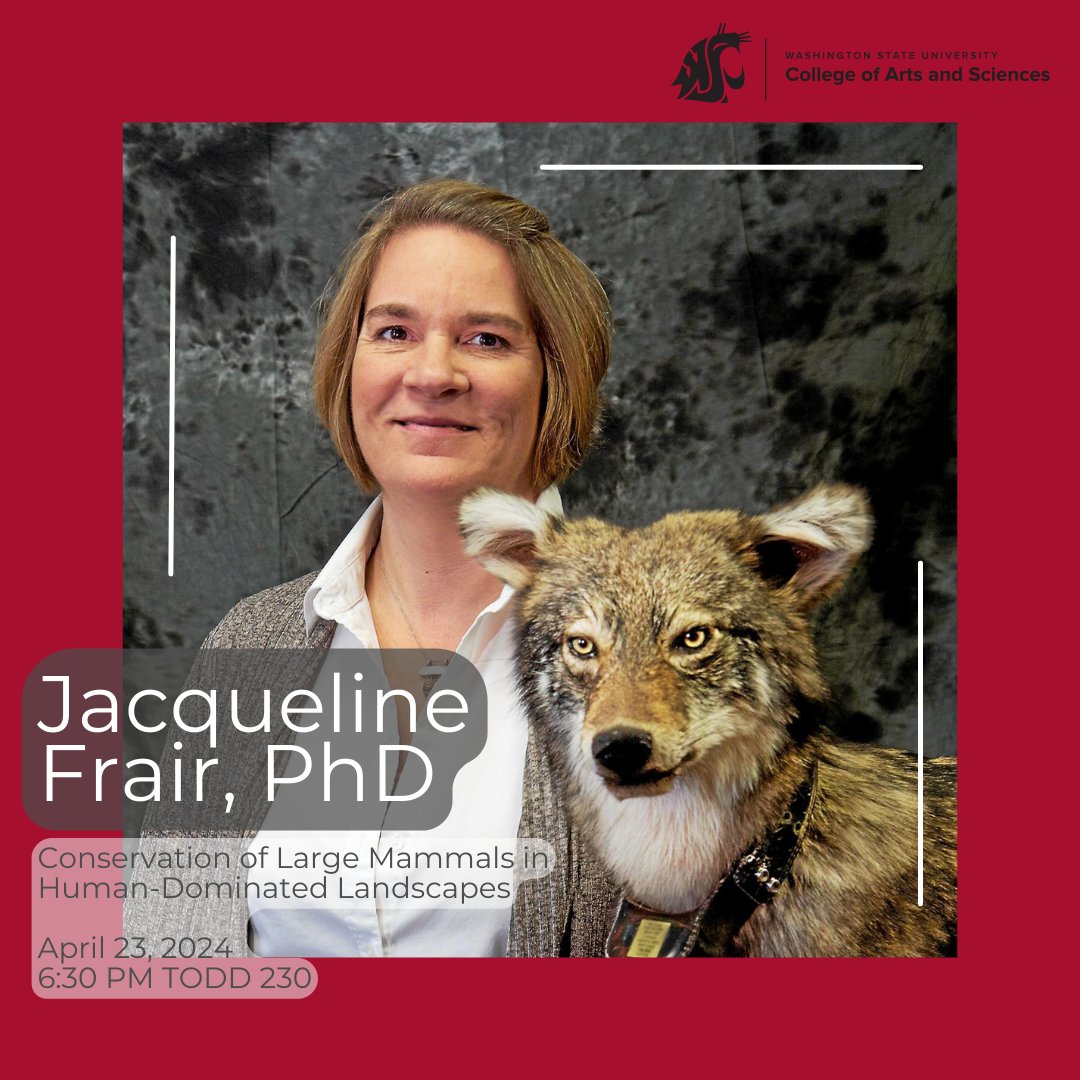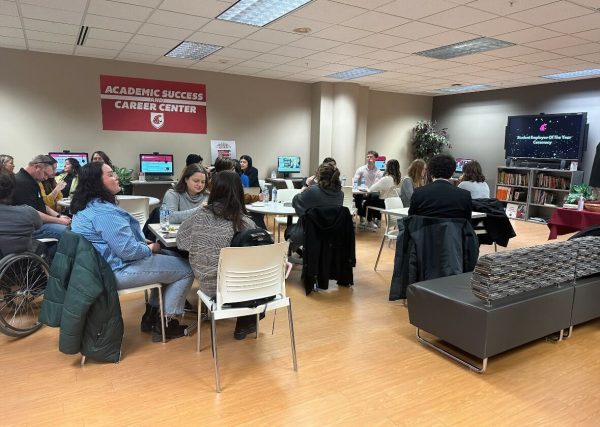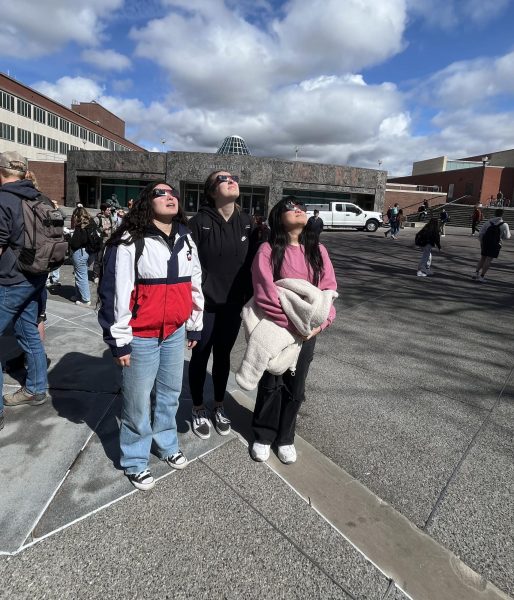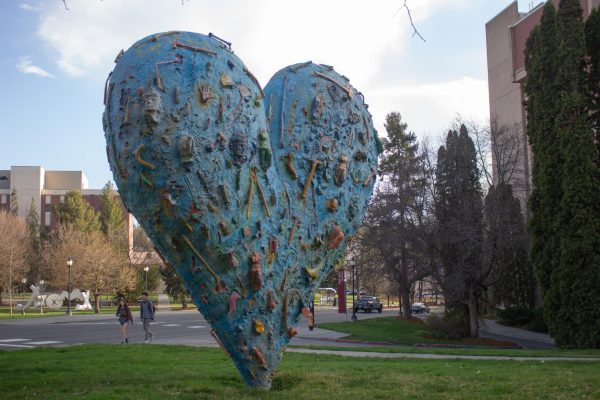White Rose a thorn in the Nazis’ side
February 4, 2014
A new exhibit in the Terrell Library highlights one student group’s resistance against Nazi Germany.
“Die Weisse Rose: The White Rose” is a traveling exhibit that will make WSU its home until March 7. The exhibit is hosted by the White Rose Foundation in Munich.
David Clay Large, a professor emeritus from Montana State University, spoke at the reception for the exhibit last night in the library atrium.
The author of several books on German history, Large spoke of students from the University of Munich who worked with a sympathetic philosophy professor to launch an anonymous anti-Nazi campaign during World War II.
The White Rose movement, as it was called, denounced the Nazis through leaflets and graffiti and resulted in the executions of many of the students.
Large was intrigued by the fact that the movement took place in Munich, a city Hitler called the closest to his heart.
He identified Hans Scholl as a central figure in the movement. Scholl, a dedicated member of the Hitler Youth as a teenager, became disenchanted after one of his favorite teachers was sent to the concentration camps.
Most of the White Rose students found inspiration in the lectures of University of Munich professor Kurt Huber, who helped them write and distributed their leaflets, Large said.
Some of those leaflets were seen by a janitor where they were distributed, who turned them over to the Gestapo. As a result, the entire inner circle of the White Rose was executed.
“They had hoped that their execution would galvanize other students to rise up against the regime,” Large said. “That did not happen, alas.”
In fact, a rally took place just days later in Munich in which many students proclaimed undying loyalty to the Third Reich.
The exhibit is set up in the atrium and the first floor and features reproductions of the groups’ six leaflets. The exhibit also includes a three-part film series beginning at 7 p.m. Feb. 11 with “Schindler’s List” in CUE 203.
“It seems particularly fitting for this to be in a university since it was a student-led movement,” said Raymond Sun, an associate professor and chair of the WSU Department of History.
Large echoed this sentiment, saying, “Universities should be places of questioning abuses of authority… oftentimes that obligation is ignored or repressed.”
The exhibit will culminate in a roundtable discussion 12 p.m. March 7 in the Honors College Lounge. The panel, “Resisting Hate: The Legacy of the White Rose,” will feature C. Richard King, a professor in the WSU Department of Critical Culture, Gender, and Race Studies.
Rachel Halverson, an associate professor of German, said the panel will “be about the present, too.”
Humanities librarian Gabriella Reznowski said she was impressed that the students of the White Rose movement “made the most of their time on earth.”
“I hope that inspires some of the youth to know that they can make a difference,” Reznowski said.





















